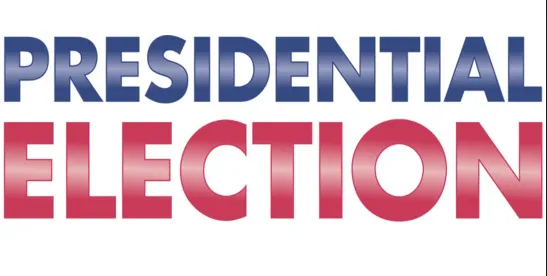- The 2024 presidential election is the first election in which both candidates have been vocal about their AI priorities, which will affect the future of AI in America. Both of their campaigns and their parties’ platforms address AI priorities.
- While campaign statements often do not translate into how a president’s administration will govern, it is clear that former President Trump and Vice President Harris disagree about the extent to which AI should be regulated.
- Former President Trump, if he regains the White House, has pledged that he would repeal Biden’s executive order on AI (AI EO), which we’ve covered, due to concerns that it stifles free speech and innovation.
- Vice President Harris, if elected, would likely protect and build on the AI EO, focusing particularly on safety and mitigating risks around privacy and civil rights.
- Both administrations would likely aim to prevent foreign adversaries, particularly China, from benefiting from US advancement in AI.
The next presidential administration will have the potential to affect the future of AI at a pivotal moment, as AI continues to advance rapidly and congressional efforts to regulate AI continue to stall. For the first time in a presidential election, both of the leading candidates and their parties’ platforms and statements have been vocal about their AI priorities and their disagreements about the extent to which AI should be regulated. Former President Trump has vowed to repeal Biden’s executive order on AI and remove regulations that may stifle US AI innovation. Meanwhile, Vice President Harris would likely build on the AI EO with a focus on AI safety and risk mitigation. Both candidates, however, have expressed similar concerns about foreign adversaries benefitting from US AI advancements.
This AI: The Washington Report newsletter explores the AI priorities and policies that are reflected in the candidates’ statements, their parties, and their supporters.
AI Policies Under a Harris Administration
As president, Harris would likely aim to build on the Biden administration’s AI EO while also advancing additional measures to ensure American AI dominance and balance AI innovation and risk mitigation. During the Democratic National Convention, Harris pledged, “I will make sure that we lead the world into the future on … artificial intelligence; that America, not China, wins the competition for the 21st century.” At the same time, Harris and the 2024 Democratic Party Platform are concerned about AI safety and risks and AI’s ability to “clone voices, commit fraud, institutionalize bias, and undermine democracy,” according to a Harris key advisor. Notably, Harris has “[rejected] the false choice that suggests we can either protect the public or advance innovation” in the AI space, adding, “We can and we must do both.” While neither Harris nor her party has unveiled specific AI policies — she has only announced AI priorities in speeches, for now — she has indicated that she would aim as president to strike a balance between promoting AI innovation to reap the full benefits of AI and protecting Americans from the many risks that AI poses.
Harris would also likely continue many of the Biden administration’s efforts to limit foreign adversaries’ — particularly China’s — ability to benefit from US advancements in AI. The Biden administration enacted export controls on AI chips to China, and Treasury is currently finalizing a rule to limit outbound investments in AI into countries that may use US AI advancements to threaten US national security. Highlighting these efforts by the Biden administration, the official ’24 Democratic Party Platform calls on the next administration to “seek to identify new areas where the United States and China may be able to work together, such as setting guardrails on the safe usage of artificial intelligence.”
A Harris administration would also possibly push for a global effort to regulate AI. At the Global Summit on AI Safety, Harris expressed a commitment “to establishing a set of rules and norms for AI, with allies and partners, that reflect democratic values and interests, including transparency, privacy, accountability, and consumer protections,” according to a White House fact sheet. The official ’24 Democratic Party Platform also touts the common approach to AI that the US and UK AI Safety Institutes have agreed upon. A Harris administration could seek an international agreement on principles for AI development and deployment.
Senate Democrats’ activity around AI also provides insights into potential AI priorities that a Harris administration could pursue. Senate Democrats, led by Chuck Schumer, have pushed for the passage of AI election integrity bills that protect against election deepfakes and misinformation this year; however, because there is limited time to pass these bills this Congress, as we’ve covered, these bills are more likely to be reintroduced in the next Congress, depending on its composition. A large majority of the other Senate AI bills that have advanced out of Committee authorize studies about AI safety and coordination between agencies on AI standards but lack substantive legislative changes; nonetheless, these bills, if reintroduced and passed by the next Congress and signed into law by Harris, could also provide Harris with a small AI legislative win, albeit not the comprehensive AI reform that Senate Democrats have advocated for.
AI Policies Under a Second Trump Administration
A second Trump administration would likely aim to limit regulations around AI development and deployment, motivated by concerns that existing regulations may stifle free speech and innovation in the private sector. Trump has vowed in speeches to repeal Biden’s AI EO, which the official 2024 GOP Platform calls “dangerous” and criticizes for “[hindering] AI Innovation, and [imposing] Radical Leftwing ideas on the development of this technology.” Republicans support replacing the AI EO with “AI development rooted in Free Speech and Human Flourishing,” but Trump has not released further details on what this would look like in practice.
The first Trump administration took a measured approach to AI, promoting AI research and development and principles for AI use by the federal government while largely leaving the private sector alone — an approach that Trump, if reelected, may follow again. In 2019, President Trump signed an EO on Maintaining American Leadership in Artificial Intelligence, which prioritized AI research and development by federal agencies. In 2020, President Trump also signed an EO on Promoting the Use of Trustworthy Artificial Intelligence in the Federal Government. This EO established principles for the use of AI by federal agencies that are “designed to foster public trust and confidence in the use of AI” and “ensure that the use of AI remains consistent with all applicable laws, including those related to privacy, civil rights, and civil liberties.” A second Trump administration may aim to minimally regulate the use of AI by federal agencies while leaving its hands largely off AI in the private sector.
A second Trump administration, similar to a Harris administration, would also likely take a hardline stance against foreign adversaries, particularly China, exploiting US AI advancements. Project 2025, which is led by Trump’s affiliates, warns that the Chinese Communist Party (CCP) has the “goal of becoming the global leader in artificial intelligence (AI) by 2030” to “exert authoritarian control domestically and export its authoritarian governance model overseas.” Project 2025 is concerned that US companies support this effort, often unwittingly, “by feeding, training, and improving the AI datasets of companies that are beholden to the CCP.” President Trump’s previous statements on protecting American technological advancements from China suggest that he shares Project 2025’s concerns about China’s approach to AI and may take measures to protect America from ceding AI dominance to China.
Senate Republicans and a second Trump administration would likely have a similar appetite — or lack thereof — to move to pass AI legislation due to concerns that such legislation would stifle free speech and innovation. While some Senate Republicans have sponsored bills that would protect against AI-generated deepfakes in elections, Republican Senators have stalled these bills due to concerns that they go too far in limiting free speech. Trump has also shared concerns aboutAI-generated deepfakes about the election and other issues on social media, making his support for such bills unlikely. However, Trump could work with Republican Senators to pass legislation introduced by Sen. John Thune (R-SD) to create guardrails and standards for the use of AI by federal agencies, building on President Trump’s executive orders on AI.
Conclusion
Both a Harris administration or a second Trump administration will have ample opportunities to affect the future of AI with the measures and policies that they implement — or repeal — while in office. While the Biden administration has shaped US AI policy largely through a single executive order and with minimal Congressional involvement, the next administration will have the opportunity — and challenge — of attempting to work with Congress to pass AI legislation.






 />i
/>i
